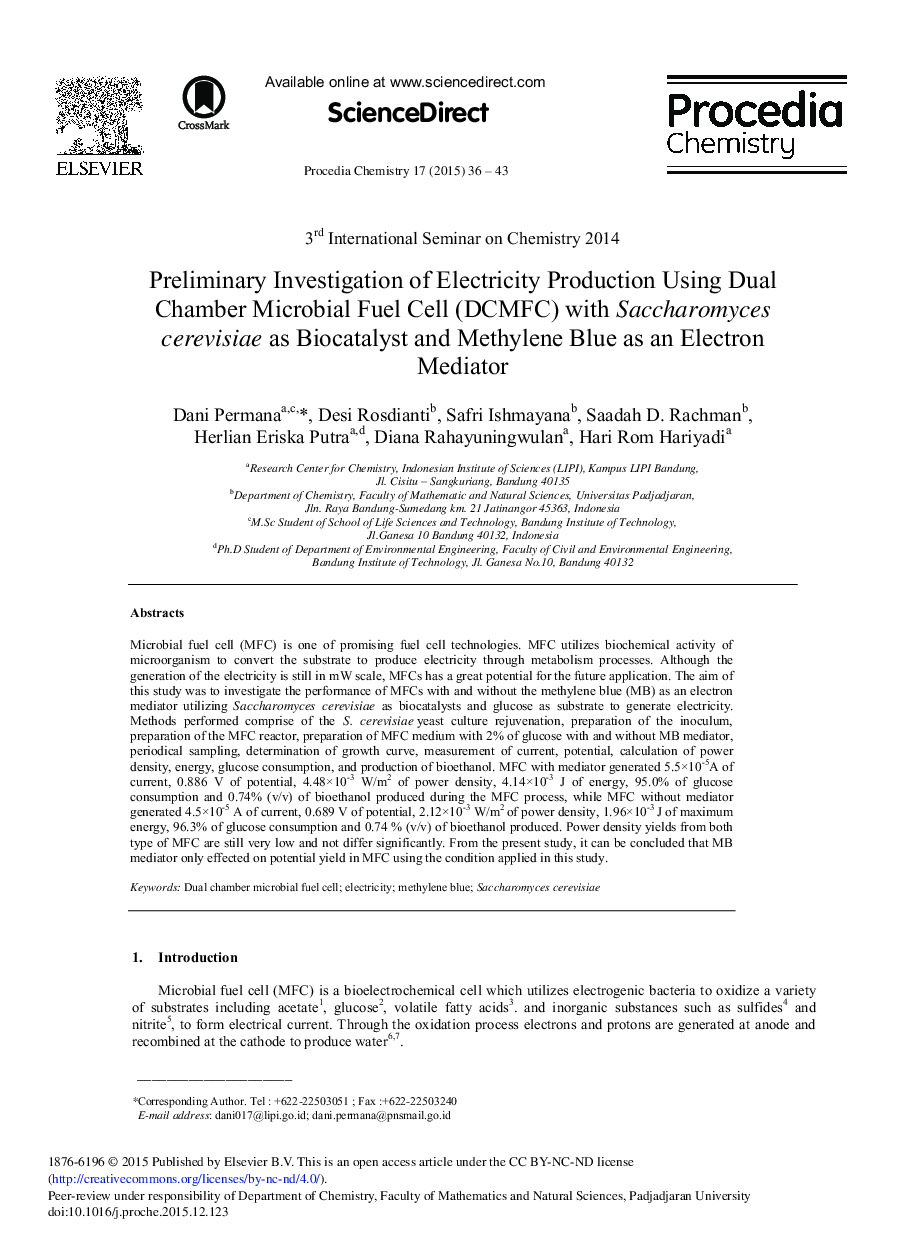| Article ID | Journal | Published Year | Pages | File Type |
|---|---|---|---|---|
| 239612 | Procedia Chemistry | 2015 | 8 Pages |
Microbial fuel cell (MFC) is one of promising fuel cell technologies. MFC utilizes biochemical activity of microorganism to convert the substrate to produce electricity through metabolism processes. Although the generation of the electricity is still in mW scale, MFCs has a great potential for the future application. The aim of this study was to investigate the performance of MFCs with and without the methylene blue (MB) as an electron mediator utilizing Saccharomyces cerevisiae as biocatalysts and glucose as substrate to generate electricity. Methods performed comprise of the S. cerevisiae yeast culture rejuvenation, preparation of the inoculum, preparation of the MFC reactor, preparation of MFC medium with 2% of glucose with and without MB mediator, periodical sampling, determination of growth curve, measurement of current, potential, calculation of power density, energy, glucose consumption, and production of bioethanol. MFC with mediator generated 5.5×10-5A of current, 0.886 V of potential, 4.48×10-3 W/m2 of power density, 4.14×10-3 J of energy, 95.0% of glucose consumption and 0.74% (v/v) of bioethanol produced during the MFC process, while MFC without mediator generated 4.5×10-5 A of current, 0.689 V of potential, 2.12×10-3 W/m2 of power density, 1.96×10-3 J of maximum energy, 96.3% of glucose consumption and 0.74% (v/v) of bioethanol produced. Power density yields from both type of MFC are still very low and not differ significantly. From the present study, it can be concluded that MB mediator only effected on potential yield in MFC using the condition applied in this study.
